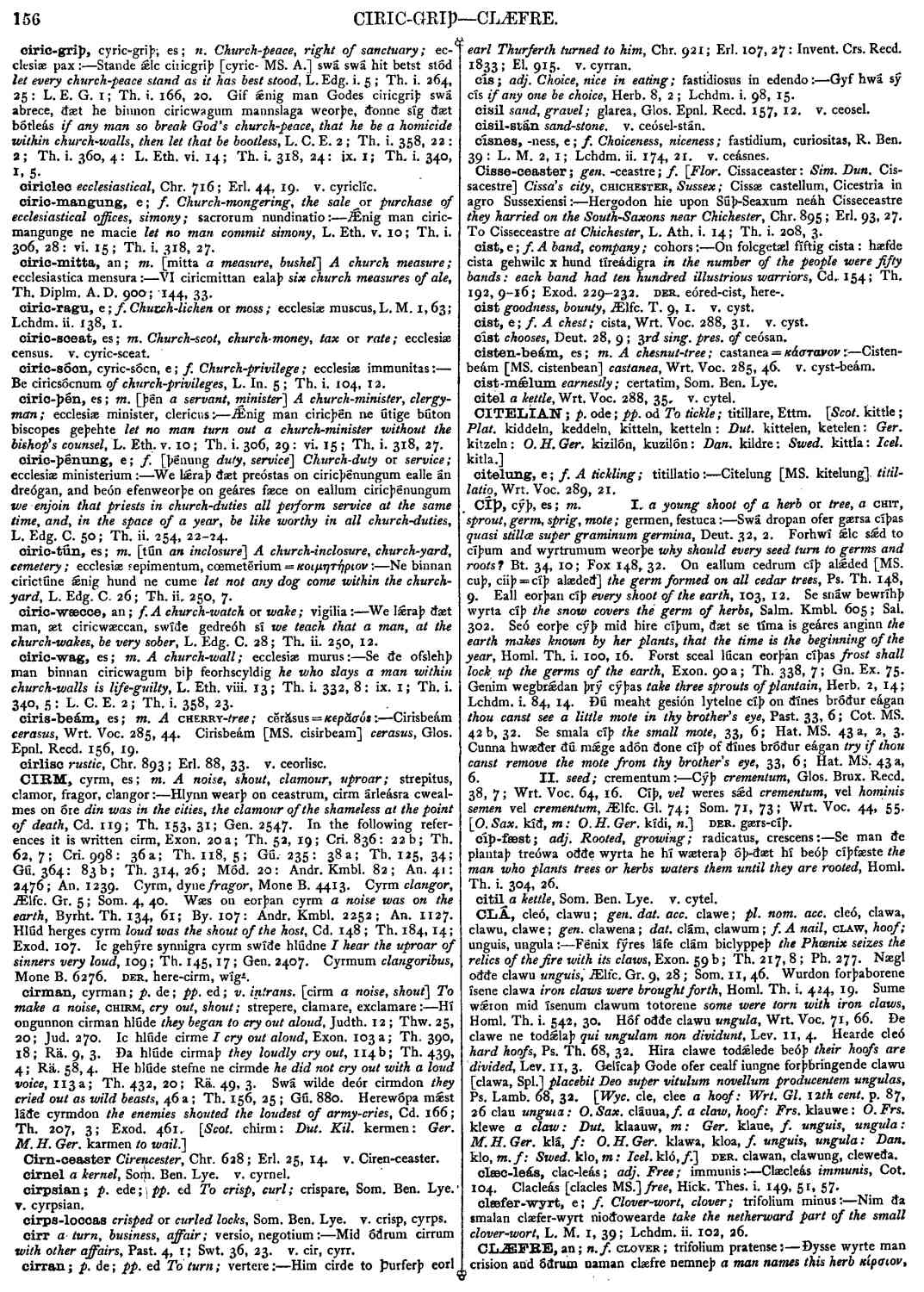CIRM
- noun [ masculine ]
-
Hlynn wearþ on ceastrum, cirm árleásra cwealmes on óre
din was in the cities, the clamour of the shameless at the point of death,
- Cd. 119 ;
- Th. 153, 31 ;
- Gen. 2547 .
- In the following references it is written cirm,
- Exon. 20a ;
- Th. 52, 19 ;
- Cri. 836: 22b ;
- Th. 62, 7 ;
- Cri. 998: 36a ;
- Th. 118, 5; Gú. 235; 38a; Th. 125, 34; Gú. 364: 83b; Th. 314, 26; Mód. 20: Andr. Kmbl. 82; An. 41: 2476 ;
- An. 1239 .
-
Cyrm, dyne
fragor,
- Mone B. 4413 .
-
Cyrm
clangor,
- Ælfc. Gr. 5 ;
- Som. 4, 40 .
-
Wæs on eorþan cyrm
a noise was on the earth,
- Byrht. Th. 134, 61 ;
- By. 107: Andr. Kmbl. 2252 ;
- An. 1127 .
-
Hlúd herges cyrm
loud was the shout of the host,
- Cd. 148 ;
- Th. 184, 14 ;
- Exod. 107 .
-
Ic gehýre synnigra cyrm swíðe hlúdne
I hear the uproar of sinners very loud,
- 109 ;
- Th. 145, 17 ;
- Gen. 2407 .
-
Cyrmum
clangoribus,
- Mone B. 6276 .
Bosworth, Joseph. “CIRM.” In An Anglo-Saxon Dictionary Online, edited by Thomas Northcote Toller, Christ Sean, and Ondřej Tichy. Prague: Faculty of Arts, Charles University, 2014. https://bosworthtoller.com/6234.
Checked: 1